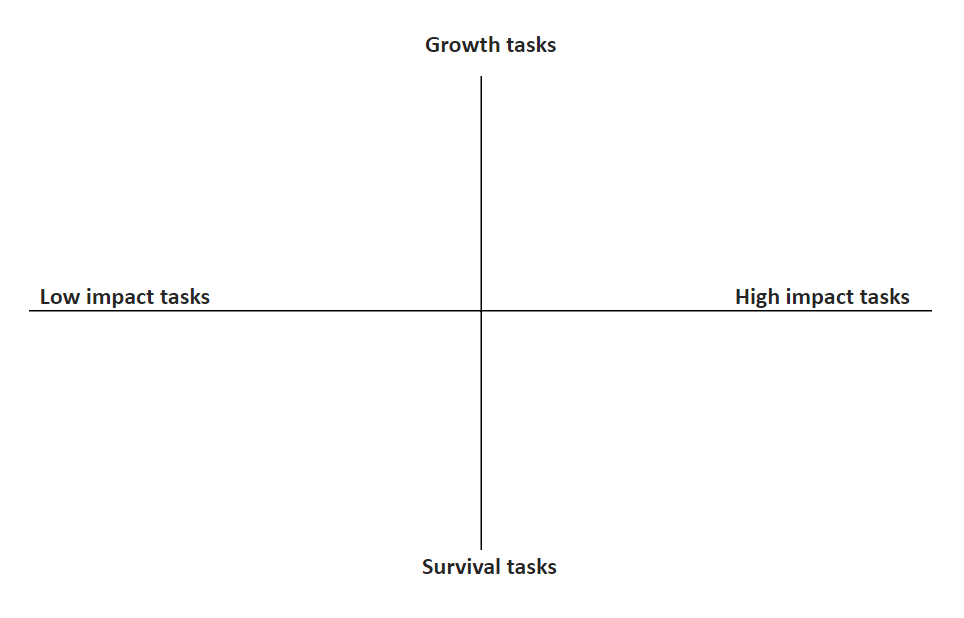So, you own a business. That means you get to call the shots and do things on your own terms. Awesome, right? No boss watching over your shoulder, no scrambling for time off – just running the show however you want.
And while that all sounds great in theory, you’ve probably learned (the hard way) that there’s more to it.
If you’re like most, there’s a good chance you’ve worked for someone else in the past. Somewhere you could just show up for work, grab your tools and go out on a job. Then get paid. And although you had to answer to someone higher up, it was a pretty easy routine.
But being in the driver’s seat is a whole different ballgame. You’ve suddenly gone from tradie to head honcho – and you’re left having to do everything. Instead of simply downing a coffee and hoisting your tool belt, you’re also paying the bills and sorting your taxes. But when you’re starting out, you’re trying to keep costs to a minimum. So, it makes sense to do it all yourself. That way you’re saving money and getting ahead, right?
Or have you simply become the world’s highest paid cleaner?
Let me tell you a story about a mate of mine. He’s a business consultant – and actually earns a pretty good crust. But, until recently, he was still doing his own home cleaning.
It wasn’t as though he couldn’t afford a cleaner. Far from it. He just didn’t see that there was any other option.
But it was taking him hours to clean his house each week! Hours he could’ve been doing something else – something way more productive for his business. Maybe meeting up with prospective clients, taking a conference call, or working on a new strategy. The stuff that would actually benefit his business, and ultimately, provide far better use of his time.
So, why waste an entire day doing something he could easily outsource?
Good question. And he’s probably not alone in this, as it’s a pretty common scenario.
He was talking to a friend one day and let slip that he needed to do some cleaning. His friend said to him, “You must be the world’s highest paid cleaner”. He went on to explain further …
Imagine if he were to pay a cleaner $30 an hour, for example. For ten hours of cleaning, he’d be out of pocket by $300.
Now, let’s look at ten hours of meetings and business strategy that lands a new client and earns him, say, $3000. Even if he paid his cleaner, he still just made $2700. If he focused on the big stuff and got someone else to do the rest, he was always in front.
It might sound counterintuitive at first. As a business owner, your instinct is to not spend money. But you have to spend money to make money – as the old saying goes. And that means focusing on the high-income growth aspects of your business while paying someone else to do the “survival” stuff.
So, let’s put that into perspective.
Think of all the tasks that contribute to the running of your business. Whether they’re daily, monthly, annually, big or small. Each task will fall within the parameters of four main quadrants:

Now imagine you have to do ALL these things on your own. No help.
Here’s how they’d look.
- Low impact / survival tasks – are anything considered administration. They’re things like invoicing, bookkeeping, emails, and bill payments.
These are 100% necessary for running your business, but they generally don’t generate any income on their own merit.
- High impact / survival tasks – are referred to as implementation. These are your “on the tools” jobs – the products and services you deliver your clients on a daily basis.
No matter what stage you’re at, delivering a great product or service is key to a successful and sustainable business. But if you never shift your focus past these activities, you’re really just a glorified job owner, rather than a business owner.
- Low impact / growth tasks – are what we call organisation. These are the processes you have in place that allow the business to run smoothly. We’re talking project management, team management, compliance, client liaison etc.
The better and more efficient your processes, the more likely you are to achieve growth. But it takes time and effort to put them in place.
- High impact / growth tasks – also known as amplification, are where things really kick into gear. Think all things business development – such as proposals, sales, and marketing.
This is the stuff that is going to make you the real money. So, it’s where your priorities should lie.
Here’s the big idea …
Organisation and amplification will generate the real profit and growth in your business.
Administration and implementation are necessary for your business to survive and prevent you from losing that profit.
It’s a big shift in thinking for many builders and trades business owners. Statistically, most will never make the leap.
If you spend all your time on Administration and Implementation, your business will make enough money to chug along in basic survival mode. But you’ll be working harder for less money, and you’ll never get ahead.
By employing others to handle those tasks; your time is freed up to focus on the Organisation and Amplification aspects.
With the right strategy, you can gradually build your business up to an income-producing asset – rather than just a job.
I talk more about this in the Building Profit Foundations program. It’s a detailed model that shows you exactly how to go from “survive” mode to “thrive” mode. It teaches you to gain more control by shifting what you control. So, you’ll never pay yourself to clean again!


Leave A Comment